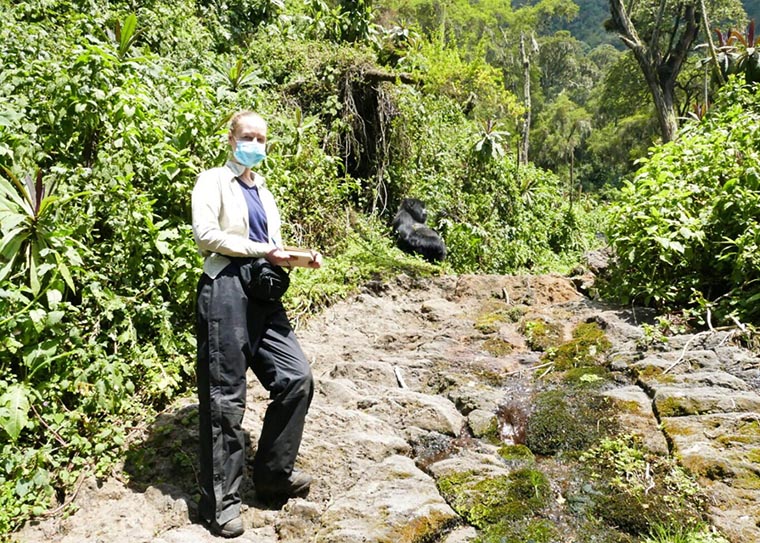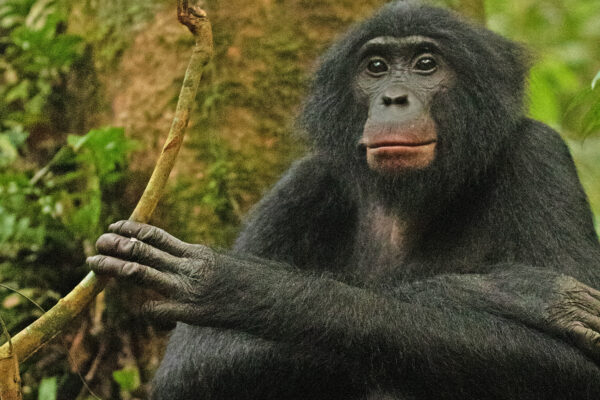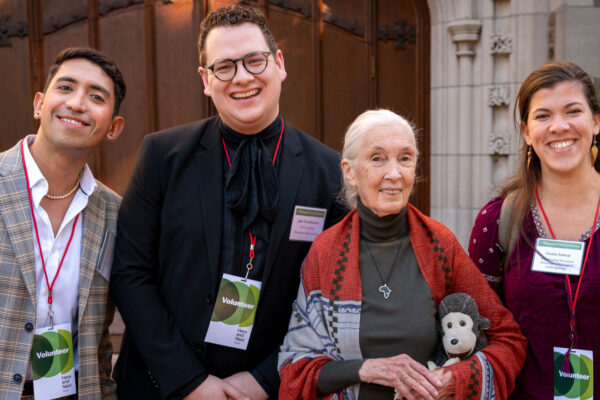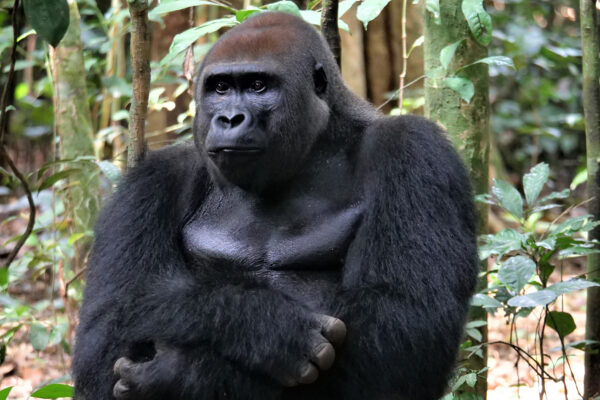The world’s entire population of endangered mountain gorillas (Gorilla beringei beringei) lives along the slopes of the Virunga volcanoes, a densely forested area at the border of the Democratic Republic of the Congo, Uganda and Rwanda. These gorillas face substantial pressure from humans. But with the benefit of protected status, wild gorillas have experienced some recent successes: their population is increasing. More gorillas must now make do with the resources available to them in the same restricted geographic area.
Lauren Wiseman-Jones, a graduate student of biological anthropology in Arts & Sciences at Washington University in St. Louis, was awarded a Leakey Foundation grant to support her research with the Virunga mountain gorillas. Wiseman-Jones is investigating how the gorillas are responding to social and anthropogenic stressors, including intergroup encounters and illegal human activities.
“Studying adaptive responses to stressors — such as flexible transformations in physiology and behavior — in a non-human primate species closely related to humans can inform how stress and environmental heterogeneity shaped the evolution of flexible responses, and the large adaptive repertoire of our own species,” Wiseman-Jones said.
Given the current rapid pace of global change, little is known about whether these mechanisms will allow species to adapt. This research is also critical to clarify the adaptive capacity of gorillas to current and future environmental challenges. Wiseman-Jones is conducting her research work at the Karisoke Research Center at Volcanoes National Park in Rwanda. The center was founded by Dian Fossey in 1967.



